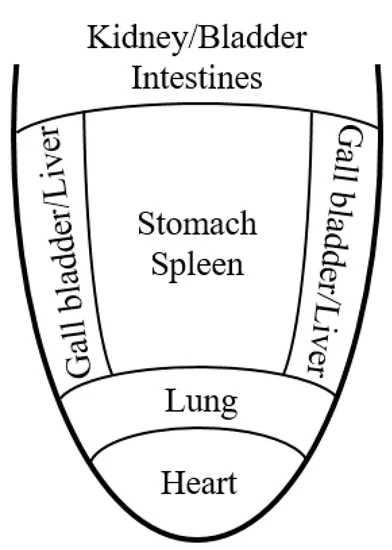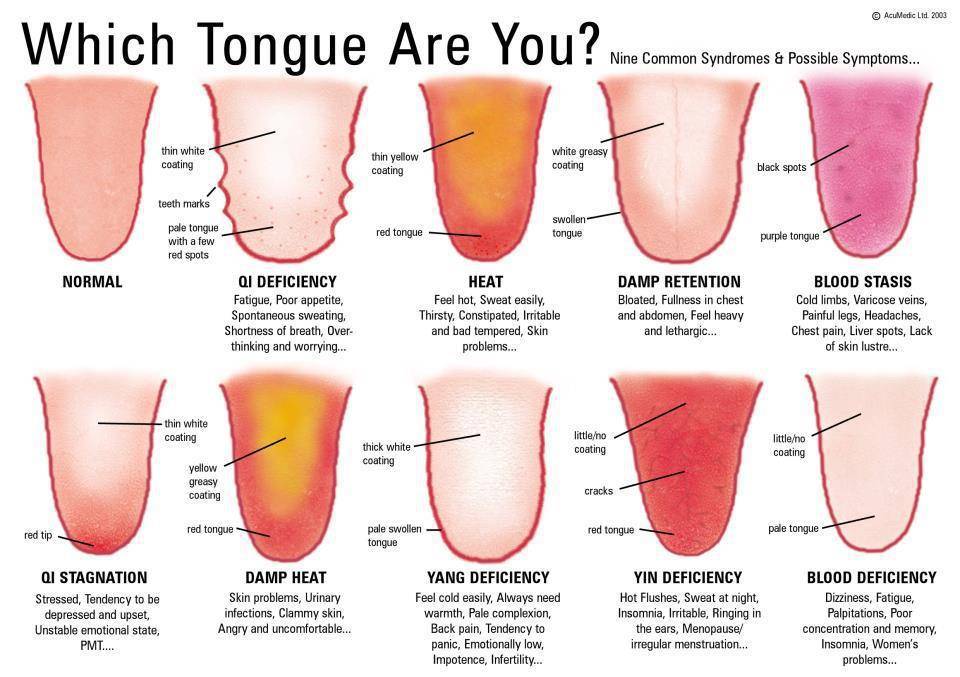In Traditional Chinese Medicine (TCM), the tongue is used as a very valuable source of medical diagnosis. Practiced for thousands of years, the tongue is the only external organ in the body with visual health indicators.
Much like the pulse diagnosis, TCM practitioners have used the tool of tongue diagnosis to better understand what is happening within each patient’s body.
Regarded as the “MRI” of traditional medicine, the holistic, non-invasive qualities have attracted many Western citizens to alternative medicine.

The Flower of The Heart
From the Chinese medical perspective, the tongue is regarded as “the flower of the heart”.
With the ability to reveal the body’s health on a macro level, a simple tongue diagnosis is able to confirm the state of one’s kidneys, bladder, intestines, gall bladder, liver, stomach, spleen and heart.
What We Look For
In Chinese medicine, each type of tongue quality relates to a Chinese diagnosis, as well as particular physical and mental/emotional symptoms (these will be described in more detail below):
In Traditional Chinese Medicine, specific characteristics of the tongue reveal qualities of mental, physical and emotional health, detailed below:
Tongue Shape
- A thin or small tongue can be a sign of either a blood or yin deficiency
- Swollen tongues indicate a deficiency in “qi.” If there is enough swelling in the tongue, it will press itself against the teeth, producing teeth marks on the tongue itself. This is referred to as a “scalloped tongue”
Tongue Color
- The body color of the tongue tells us the body’s internal temperature.
- A normal colored tongue will show up as pink or light red
- A pale tongue resembles a “cold” condition of the body
- A red tongue resembles a “heat” condition of the body
- A purple tongue resembles stagnation of blood, or lack of blood circulation in the body.
Tongue Coating
- The coating on the tongue is reflective of the coating and lining in the digestive system. A normal tongue is coated thinly in white, telling of a healthy lining in the gut flora and digestive system
- A thick tongue coat indicates a sluggish digestion system
- A thick white coat resembles a “cold” condition in the GI tract
- A thick yellow coat resembles a “heat” condition in the GI tract
- A cracked or peeling tongue coat resembles an insufficient flora or lining within the digestive system
Now, What Does This All Mean?
The state of our tongue resembles the state of our energy, health and blood flow.
By taking a closer look and putting these individual characteristics of the tongue together, we can create a more complete picture of what’s occurring within the body.
Here are some examples:
